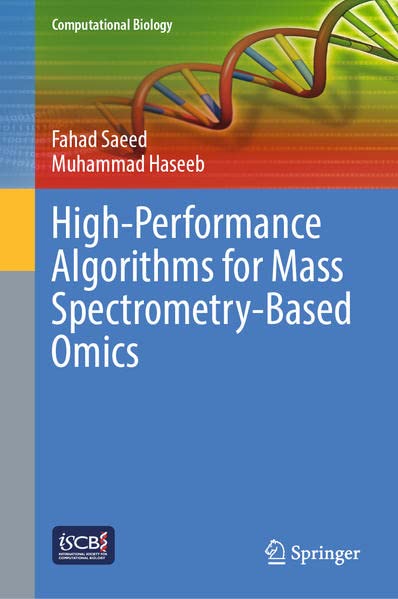

Most ebook files are in PDF format, so you can easily read them using various software such as Foxit Reader or directly on the Google Chrome browser.
Some ebook files are released by publishers in other formats such as .awz, .mobi, .epub, .fb2, etc. You may need to install specific software to read these formats on mobile/PC, such as Calibre.
Please read the tutorial at this link: https://ebookbell.com/faq
We offer FREE conversion to the popular formats you request; however, this may take some time. Therefore, right after payment, please email us, and we will try to provide the service as quickly as possible.
For some exceptional file formats or broken links (if any), please refrain from opening any disputes. Instead, email us first, and we will try to assist within a maximum of 6 hours.
EbookBell Team

4.1
40 reviewsTo date, processing of high-throughput Mass Spectrometry (MS) data is accomplished using serial algorithms. Developing new methods to process MS data is an active area of research but there is no single strategy that focuses on scalability of MS based methods.
Mass spectrometry is a diverse and versatile technology for high-throughput functional characterization of proteins, small molecules and metabolites in complex biological mixtures. In the recent years the technology has rapidly evolved and is now capable of generating increasingly large (multiple tera-bytes per experiment) and complex (multiple species/microbiome/high-dimensional) data sets. This rapid advance in MS instrumentation must be matched by equally fast and rapid evolution of scalable methods developed for analysis of these complex data sets. Ideally, the new methods should leverage the rich heterogeneous computational resources available in a ubiquitous fashion in the form of multicore, manycore, CPU-GPU, CPU-FPGA, and IntelPhi architectures.
The absence of these high-performance computing algorithms now hinders scientific advancements for mass spectrometry research. In this book we illustrate the need for high-performance computing algorithms for MS based proteomics, and proteogenomics and showcase our progress in developing these high-performance algorithms.